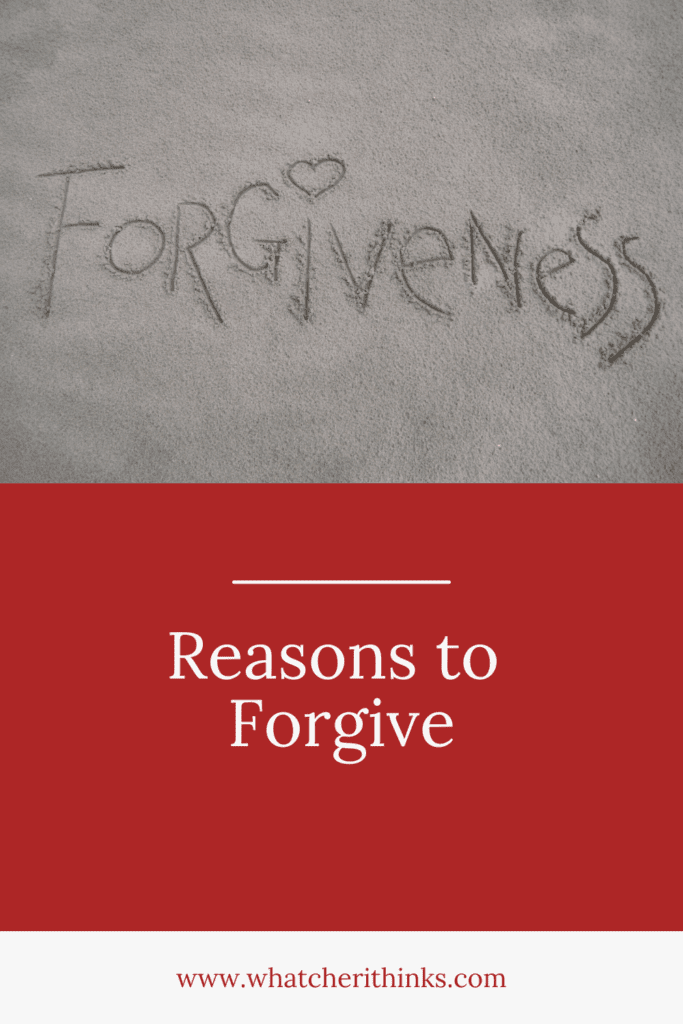Understanding the Relevance of Forgiveness in Recovery Relationships
Mercy is usually seen as a basic act of allowing go, yet its significance in healing connections prolongs much past plain absolution. What remains to be uncovered is the profound effect forgiveness can have on private development and public consistency.
The Interpretation of Mercy
Although mercy is frequently perceived as an easy act of releasing, its meaning includes an intricate interaction of psychological and emotional procedures. At its core, mercy is the mindful choice to release feelings of bitterness or vengeance toward an individual or group that has actually created injury. This procedure is not just regarding discharging the wrongdoer; rather, it involves an extensive psychological improvement that can cause personal growth and healing.
Mercy is complex, usually identified by a person's interior struggle to integrate their discomfort with the wish for peace. It requires identifying the wrongs dedicated, refining the connected emotions, and ultimately deciding to relocate ahead without the concern of bitterness. This option typically involves a cognitive shift, where one reframes their understanding of the disobedience and the criminal, allowing for compassion and comprehending to emerge.
Notably, forgiveness does not imply pardoning the habits or forgetting the offense; it is a deliberate act that focuses on emotional health. By defining forgiveness in this way, we can appreciate its function in facilitating much healthier partnerships and fostering psychological durability, setting the stage for much deeper expedition into its benefits.
Psychological Benefits of Mercy
Forgiveness supplies considerable psychological advantages that can exceptionally impact an individual's psychological health and wellness and total health. When a person picks to forgive, they actively release sensations of resentment, resentment, and temper, which can or else create a hefty psychological concern. This launch often causes a reduction in stress and anxiety and anxiety, promoting a feeling of tranquility and emotional stability.
Moreover, mercy fosters an enhanced capability for empathy and concern. By understanding the perspective of the wrongdoer, people can grow a deeper emotional resilience, which improves their capability to deal with future obstacles. This process not only improves emotional policy but additionally adds to a more positive outlook on life.
Additionally, forgiving others can enhance one's self-confidence and self-respect. It enables people to recover their personal power, breaking without the adverse cycles of victimhood - The importance of forgiveness. This newly found empowerment can bring about much healthier psychological feedbacks and more powerful interpersonal connections
Forgiveness vs. Settlement
The difference between forgiveness and settlement is crucial in understanding the dynamics of healing partnerships. Mercy is an interior procedure wherein a specific picks to allow go of bitterness The importance of forgiveness and unfavorable sensations towards someone that has actually triggered injury. It is primarily an individual journey, concentrated on psychological launch and self-healing, enabling one to progress without lugging the problem of past grievances.
On the other hand, reconciliation entails rebuilding and recovering the partnership to a state of trust and common regard. This process usually calls for open interaction, active engagement from both celebrations, and a dedication to dealing with the underlying concerns that resulted in the problem. While forgiveness can happen individually, reconciliation demands the willingness of both people to involve in dialogue and pursue a shared understanding.
It is very important to note that forgiveness does not constantly lead to reconciliation. A person might forgive another without choosing to recover the relationship, especially if trust fund has actually been irrevocably damaged or if the connection is regarded harmful. Understanding this distinction enables people to browse their feelings efficiently and make notified choices concerning their partnerships.
Steps to Cultivate Forgiveness
Cultivating forgiveness is an intentional procedure that entails several essential actions focused on promoting psychological recovery. The initial step is acknowledging the discomfort brought on by the offense. Acknowledging one's feelings is vital, as it enables people to refine their feelings really.
Next, assessing the occurrence and comprehending its effect can supply clearness. informative post This reflection ought to include analyzing the motivations behind the culprit's actions and recognizing that everyone is imperfect.
The 3rd action includes making a mindful decision to forgive. This decision is crucial, as it signifies a willingness to allow go of animosity and progress.
Subsequently, sharing sensations in a constructive fashion can be valuable - The importance of forgiveness. Whether through journaling, chatting with a relied on good friend, or seeking therapy, expression of feelings can help in the forgiveness trip
Real-Life Examples of Forgiveness

In an additional instance, a dense team of friends faced a significant rift after one member inadvertently shared a private secret. Instead of nurturing resentment, the affected good friend determined to forgive, recognizing the relevance of valuing the relationship over the blunder. This choice motivated open dialogue and eventually enhanced their connection.

Final Thought
To conclude, mercy plays a pivotal function in the recovery of connections by promoting the release of unfavorable feelings and promoting compassion. By comparing forgiveness and reconciliation, people can participate in a useful procedure that enhances psychological health. Executing actions to grow forgiveness can cause transformative end results, strengthening links and advertising a supportive atmosphere. Inevitably, the technique of forgiveness functions as a stimulant for individual growth and the nurturing of healthier interpersonal characteristics.
